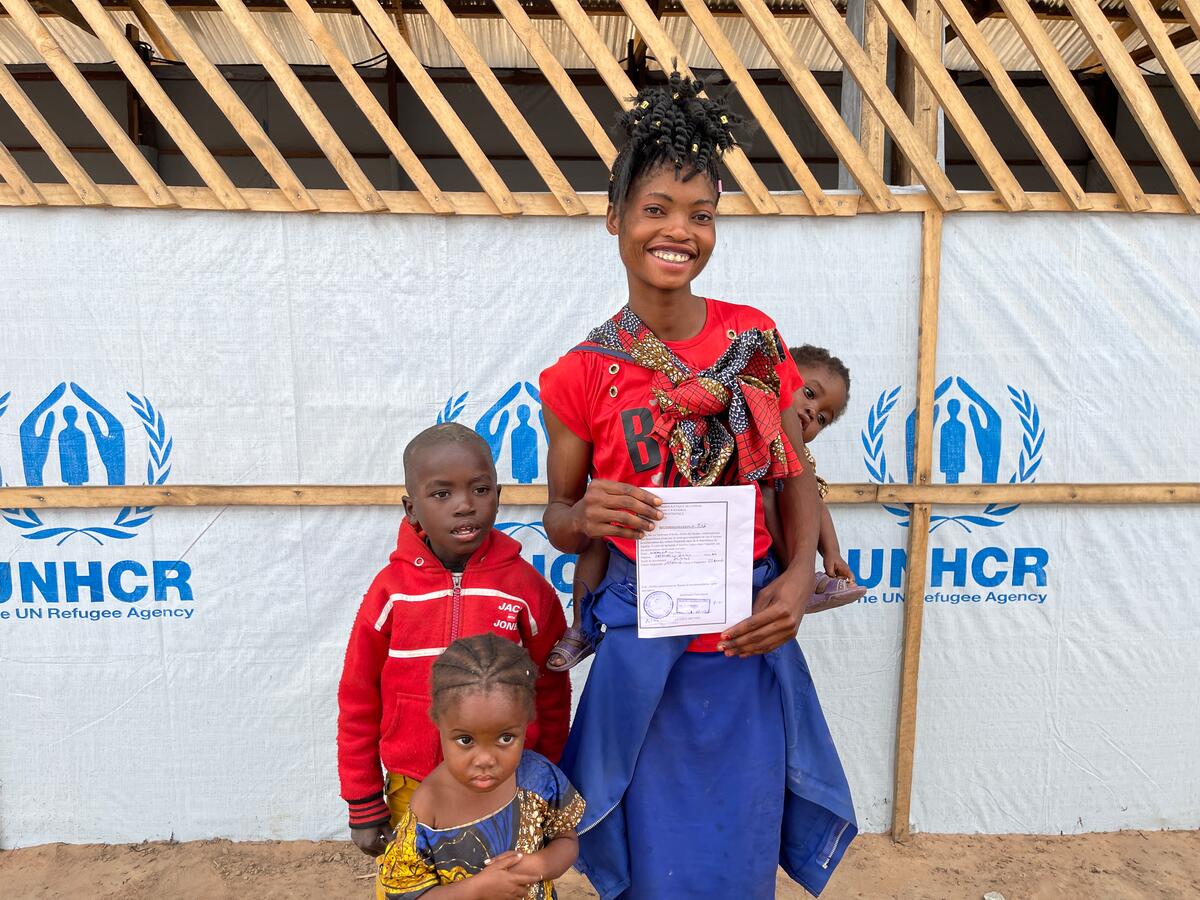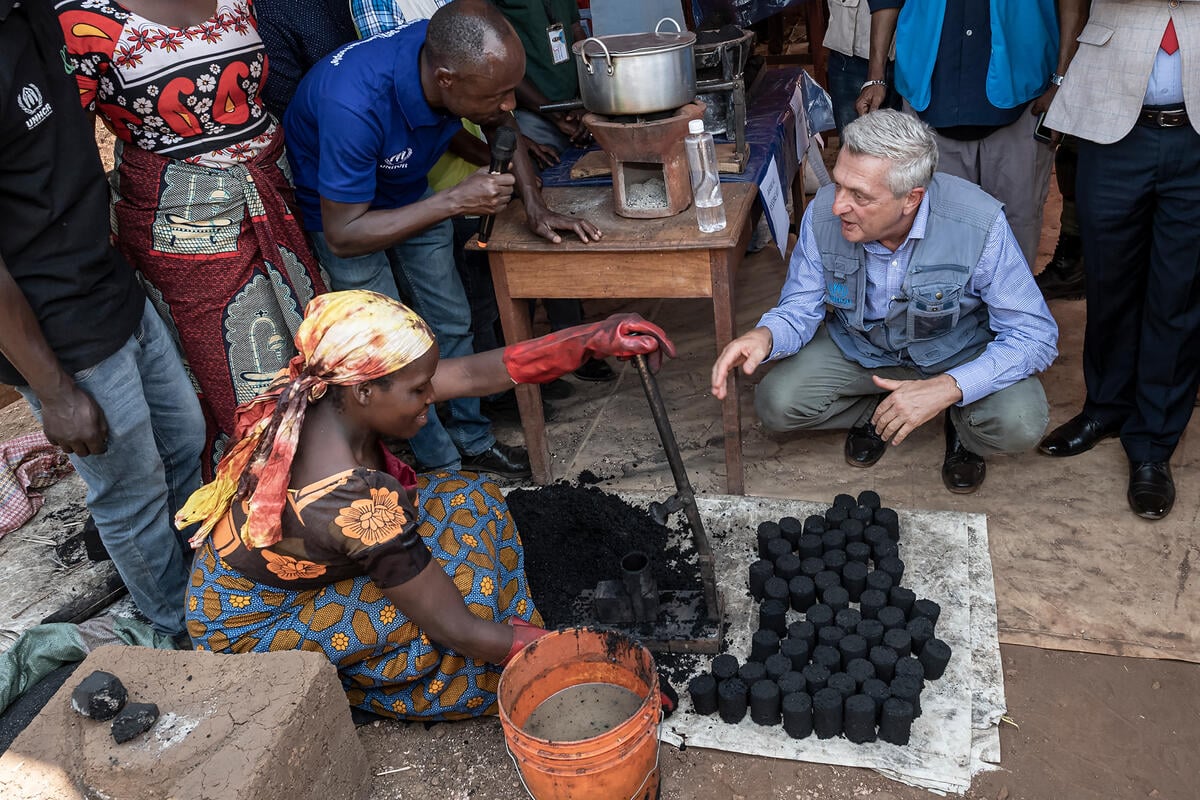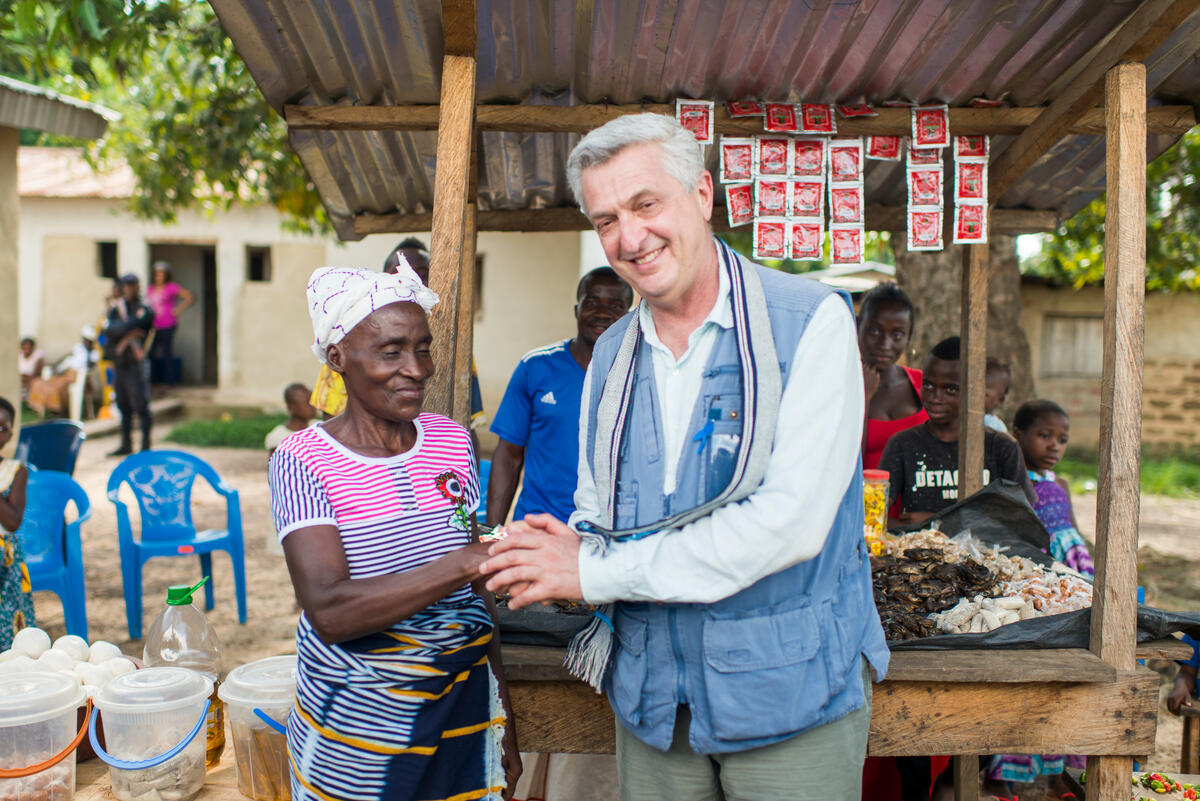Farming prospects prompt some refugees to head back to Somalia temporarily
Farming prospects prompt some refugees to head back to Somalia temporarily
Expectations of upcoming seasonal rains and improved farming prospects in parts of Somalia have prompted several thousand Somali refugees in Ethiopia and Kenya to temporarily return home. This comes as the UN has announced that famine conditions no longer prevail in Somalia and despite a doubling of conflict-related displacement within the country in recent months.
According to estimates from our operation in Somalia, some 7,000 refugees left Kenya and Ethiopia in January, mainly returning to the previously famine-affected Bay, Bakool, Gedo and Banadir regions. Some told us they were going back to Somalia to take advantage of upcoming seasonal rains to resume farming in their villages. They also say they left their women and children in the refugee camps but plan to rejoin them once the harvest is over, as they fear it is not safe to stay in Somalia.
UNHCR staff have been cautioning refugees who wish to return about risks they may face en route. Our staff in Somalia are also planning to distribute some emergency assistance to needy returnees in the border area towns of Dhobley, Bulo Barwaqo, Diif and a number of surrounding villages.
UNHCR maintains its position that any return to Somalia must be well-informed and voluntary, and that the country's situation is not yet conducive for organized repatriation. While famine and drought conditions have eased across Somalia, insecurity continues to cause displacement within the country. More than 49,000 Somalis were uprooted in December and January, half of them for security reasons. By our estimates the total number of internally displaced Somalis is 1.36 million.
Notwithstanding the recent returns some outflow from Somalia continues. More than 2,000 people arrived in southern Ethiopia's Dollo Ado camps in January. UNHCR has been moving the recent arrivals to the fifth and newest camp in Dollo Ado called Bur Amino.
Last week, UNHCR warned of several suspected polio cases in and around Bur Amino. After a two-week testing period, samples taken from the patients tested negative for polio. A routine polio immunization campaign for Somali State in Ethiopia is planned for next week. UNHCR, WHO, MSF and local health officials have been liaising intensively to prepare for the campaign, and to ensure coverage of both refugee and local communities. Training has been conducted and human and logistical resources have been assigned. The campaign will start as soon as vaccines are in place.
In all, more than 293,000 Somali refugees have fled conflict and famine into the neighbouring countries of Kenya, Ethiopia, Djibouti and Yemen since January last year.
For further information on this topic, please contact:
- In Nairobi, Kenya (Somalia Ops): Andreas Needham on mobile +254 733 120 931
- In Nairobi, (UNHCR regional hub): Vivian Tan on mobile: +254 735 337 608
- In Geneva: Andrej Mahecic on mobile +41 79 200 7617









